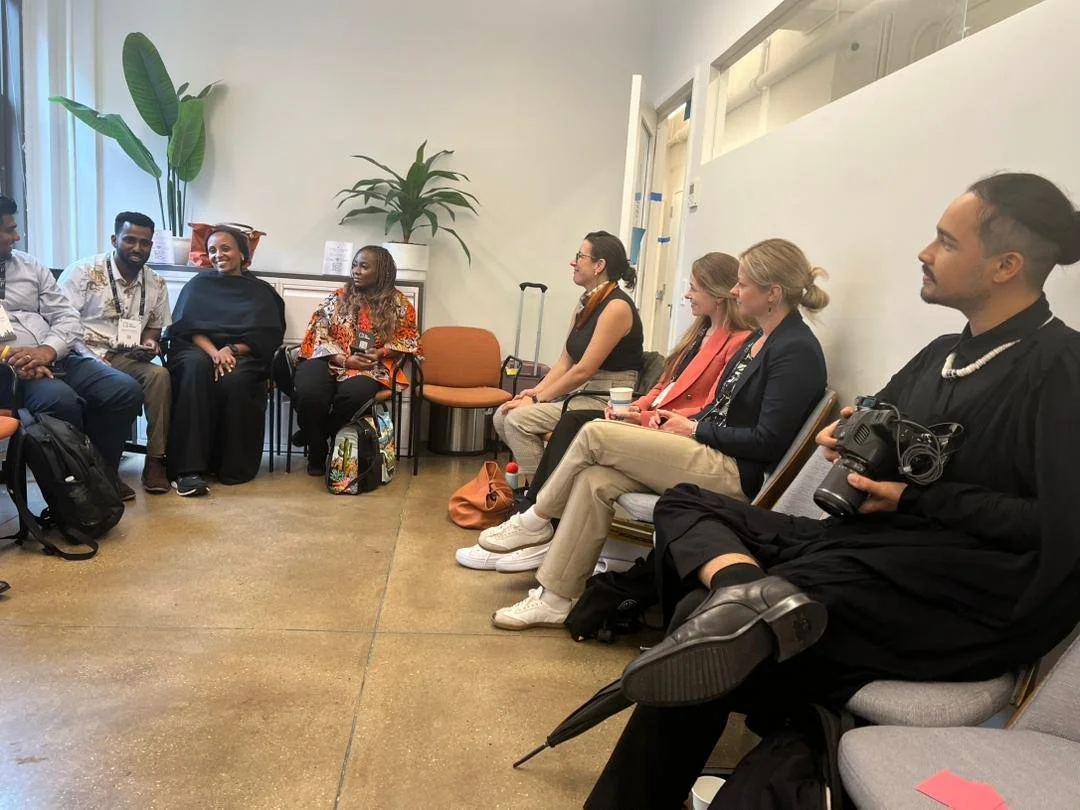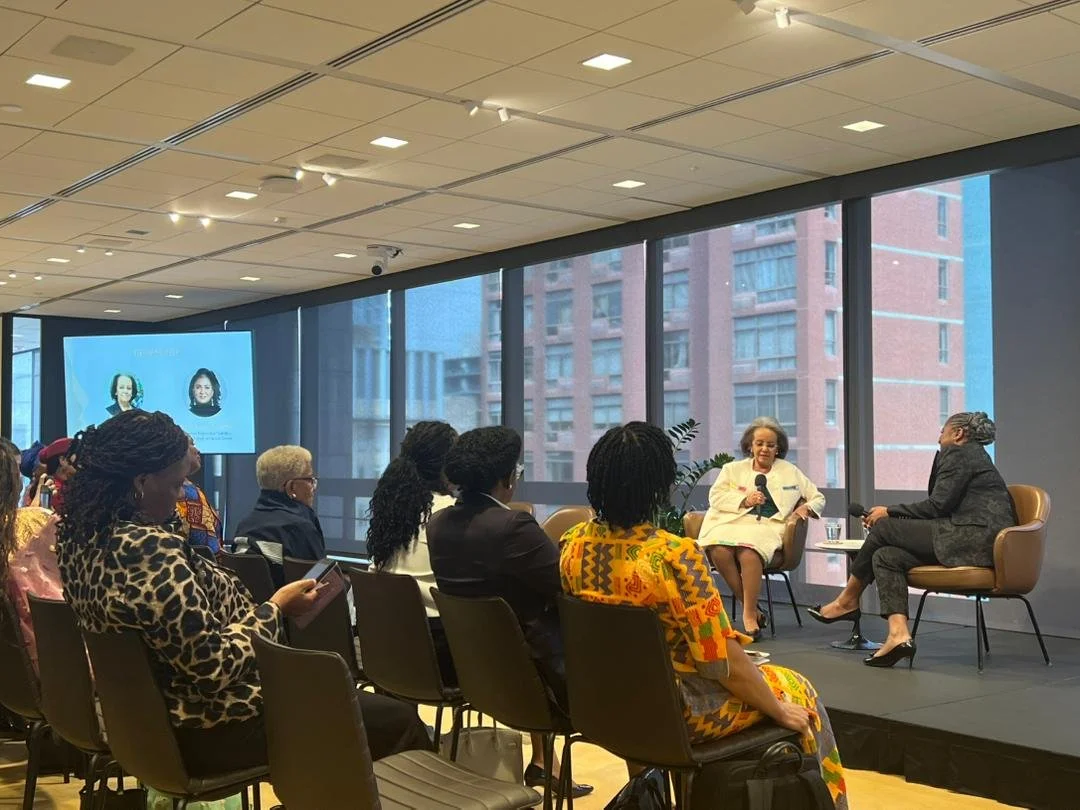Africa's Sustainable Future: Insights from 80th UN General Assembly
By Abigail Kajumba, Executive Director, Emerging Public Leaders
With this year’s UN General Assembly centered on advancing the Sustainable Development Goals through peace, prosperity, and sustainability, youth inclusion and leadership took center stage in many high-level dialogues and events. Amid numerous parallel convenings, the conversations shaping Africa’s public service leadership often unfolded as much in smaller gatherings and side events as in the main plenary. Together with EPL Board Chair Betsy Williams and our team, we joined discussions and engaged in spaces brimming with new ideas and collaboration opportunities - from major forums like the Global Africa Business Initiative’s Unstoppable Africa to informal gatherings such as The SideBar.
Here are my five takeaways for EPL and African leadership from UNGA80:
1. African-Led Solutions at the Center
A continuous message this year was the necessity for Africa to shape its own future—through energy transition, policy innovation, and regional partnerships. African solutions, articulated and implemented by African leaders, must be central to global strategies for inclusive growth and sustainability. As international aid architecture shifts toward investment, our network of young leaders, upholding values of integrity, accountability, and partnership, represents the next generation of public servants poised to deliver on multilateral African-led solutions.
President of Kenya, William Ruto, remarked at the Corporate Council on Africa that Kenya and Africa are at the center of the global economic growth, with a youthful and technologically savvy workforce driving innovation across sectors.
2. Youth Investment: Beyond Tokenism
Young Africans represent the fastest-growing, most digitally capable workforce globally with the International Finance Corporation estimating that by 2030 there will be 230 million digital jobs in Sub-Saharan Africa. UNGA80 made clear that supporting youth in governance and civic spaces must go further than symbolic gestures: the global community must create real pathways for youth leadership as decision-making partners and intentional involvement in achieving the SDGs.
A small group discussion at The SideBar on youth in governance and cross-sectoral partnerships, emphasized the importance of storytelling. Sharing lived experiences helps amplify the messages from young leaders. Participants discussed how to meaningfully engage youth within their own organizations as a critical mechanism for change.
3. AI in Governance: Ethical, Accountable, and Inclusive
AI was a constant theme throughout UNGA80, with world leaders emphasizing robust, ethical, and globally inclusive policy frameworks. For Africa, the opportunity and risk of AI rests on public policies keeping pace with technology and ensuring innovation drives good governance, strengthens democracy, and amplifies African voices. This is why EPL is exploring partnerships that would support young African policymakers in shaping AI governance for public good and harnessing its power to advance Africa’s socioeconomic aspirations.
Strive Masiyiwa spoke at Unstoppable Africa about the importance of AI in Africa’s future and the intersections between AI and capital flows that will align innovation with impact.
4. Closing the Gender Gap in Public Leadership
Despite progress, gender parity in public leadership is lagging - and at the current pace, the world will not reach parity by 2030. Discussions, including those led by the Ellen Johnson Sirleaf Center, highlighted the urgent need for mentorship, research-driven advocacy, and tangible measures to support women leaders in public service, politics, and civil society.
The Ellen Johnson Sirleaf Center for Women and Development hosted a high level event at the Ford Foundation for Social Justice with prominent women political leaders. The event addressed the barriers women face in leadership roles and how to take united action to advocate, educate, and close the gap on gender parity.
5. Multilateral Collaboration Drives Systemic Change
This General Assembly underscored that meaningful collaboration among governments, civil society, the private sector, and multilaterals is essential to scale up reforms, expand technical expertise, and close opportunity gaps - especially in rapidly evolving fields such as digital technology and climate action.
Directors from Emerging Public Leaders, Global Health Corps, Teach for All, and African Leadership Academy at the People First/IREX Impact Fellowship Network joint event shared learning on youth leadership in Africa. The event provided a valuable opportunity to strengthen collaborations for increased youth inclusion in public service.
Each UNGA brings new allies, fresh ideas, and an even greater urgency to propel public service leadership and the SDGs forward. Reflecting on these five lessons, I hope our current and potential partners in all sectors will deepen their commitment to responsible innovation, gender equity, youth empowerment, cross-sectoral partnership, and African-led solutions.
Editors Note
About Emerging Public Leaders
Emerging Public Leaders is a public service leadership organization preparing the next generation of competent and effective public sector leaders in Africa. EPL partners with governments and local organizations to rigorously identify young public service professionals who are committed to practicing and promoting good governance throughout Africa. With our support throughout their career journeys, this diverse network of leaders influences and strengthens their country’s institutions for delivering democracy with excellence, care, innovation, and integrity.
For more information about Emerging Public Leaders please visit: www.emergingpublicleaders.org.





